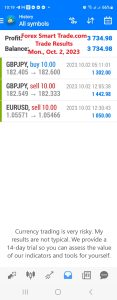Several fundamental factors help shape the long-term strength or weakness of the major currencies and will affect you as a forex trader.
We’ve included what we think are the most important for your reading pleasure:
Economic Growth and Outlook

We start easy with the economy and outlook held by consumers, businesses, and governments.
It’s easy to understand that when consumers perceive a strong economy.
Consumers feel happy and safe, and they spend money. Companies willingly take this money and say, “Hey, we’re making money! Wonderful! Now… uh, what do we do with all this money?”
Companies with money spend money. And all this creates some healthy tax revenue for the government.
They jump on board and also start spending money. Now everybody is spending, and this tends to have a positive effect on the economy.
Weak economies, on the other hand, are usually accompanied by consumers who aren’t spending, businesses who aren’t making any money and aren’t spending, so the government is the only one still spending. But you get the idea.
Both positive and negative economic outlooks can have a direct effect on the currency markets.
Gross Domestic Product
The most commonly used measure of economic growth is GDP.
GDP stands for “Gross Domestic Product” and represents the total monetary value of all final goods and services produced (and sold) within a country during a period (typically one year).
GDP provides an economic snapshot of a country and is used to estimate the size of an economy and its growth rate.
Here’s a visualization from HowMuch.net that shows the $86 TRILLION global economy in one chart:

As you can see:
- The United States is still the world’s largest economy.
- China is the world’s second-largest economy.
- The United States and China together make up nearly 40% of the global economic GDP.
- The top 15 economies represent 75% of the total global GDP.





